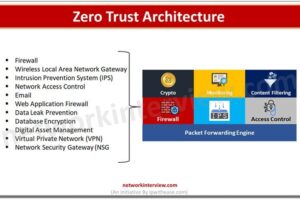
Top 10 Essential IT Support Skills Every Technician Should Master
The tech world is changing fast and greatly affects the IT industry. This quick growth means there’s a huge need for IT support technicians who are good at their jobs and can fulfill clients’ needs. In such a fast-growing domain, IT support technicians must have different skills to excel and boost organizational success.
According to a recent CompTIA study, the IT services market value is expected to leap by 5.4% in 2024, reaching $1.2 trillion. This shows the importance of mastering IT support skills and identifying the essential abilities every technician should develop. From technical expertise to customer service, these skills are vital for delivering top-notch IT support and driving innovation within IT teams. By investing in the right technical skills training courses, organizations can empower IT support technicians with the necessary skills to enhance customer satisfaction.
Importance of Mastering IT Support Skills
The proficiency of IT support technicians is crucial for operational efficiency and customer satisfaction, and here are the key reasons why:
- Ensuring operational efficiency: IT support experts who are skilled can quickly solve technical problems, reducing downtime and ensuring business processes run smoothly.
- Enhancing productivity: Effective IT support enables employees to work without interruption by providing timely fixes for their technical issues, enabling them to focus on important tasks.
- Improving customer satisfaction: Tech support staff with excellent skills can resolve user complaints, improving customer satisfaction and trust in the IT department.
- Promoting continuous improvement: Continuous training and development programs help IT support teams stay updated with the most recent technologies so they can offer innovative solutions. Partnering with a corporate training company can be an effective way to ensure continuous learning and development.
- Better decision-making: IT Technicians with strong analytical and problem-solving skills can provide key inputs to improve the decisions made about IT investments and strategies.
Top 10 Essential IT Support Skills Every Technician Should Master
In the evolving domain of IT, a wide range of skill sets is essential for technicians to thrive and provide amazing support. Here are the top 10 essential IT support skills every technician should master:
- Technical Proficiency
- Problem-Solving Skills
- Communication Skills
- Customer Service
- Data Analysis
- Critical Thinking
- Troubleshooting Skills
- Computer Networking Knowledge
- Cybersecurity Awareness
- Basic Coding and Programming Skills
1. Technical Proficiency
Technical proficiency is essential for any IT support position. Technicians must be familiar with different operating systems, software programs, and hardware parts, including Windows, macOS, Linux, and others. They must also be able to use troubleshooting software and diagnostic tools.
2. Problem-Solving Skills
IT support specialists must be able to solve problems, as they often tackle and fix complex technical issues. They need to take a methodical approach to identifying problems, evaluating possible solutions, and implementing effective fixes. Technicians must think critically and creatively, especially when faced with new or unfamiliar challenges.
3. Communication Skills
Good communication skills are crucial for IT support technicians, who must explain technical matters to non-technical users in simple terms. Strong writing skills help them record or document problems, and good speaking ensures clarity when solving issues.
4. Customer Service
Customer service is a key skill for IT support technicians, as they often serve as the primary point of contact for end-users experiencing technical issues. Excellent customer service in IT support is important as it improves user satisfaction, builds trust, and reduces downtime by ensuring timely resolution of technical problems.
5. Data Analysis
Data analysis lets IT support technicians interpret and utilize data to identify trends, analyze issues, and implement solutions. It improves IT operations by analyzing system performance metrics, error logs, and user feedback. Being skilled in data analysis enhances troubleshooting efficiency and supports proactive maintenance for a more reliable and effective IT infrastructure.
6. Critical Thinking
Critical thinking is essential for IT support technicians, empowering them to assess complex problems, consider different solutions, and make smart choices. Technicians use logical thinking and step-by-step analysis to find the real cause of problems, consider the good and bad points of possible fixes, and implement the best solution. This skill makes problem-solving more effective, reduces the possibility of recurring issues, and contributes to the overall performance of the organization’s IT systems.
7. Troubleshooting Skills
IT support technicians need top-notch troubleshooting skills to spot and fix technical problems. They must find the main cause, think through solutions, and implement good fixes. This helps cut down on time when things aren’t working and keeps business running. Clients are more satisfied when techs are great at solving problems and the organization’s tech systems stay stable.
8. Computer Networking Knowledge
IT support techs need to know computer networking to handle and fix network problems. Knowledge about network rules, equipment, and setups helps techs ensure connections, data moves, and networks run. Being good at networking lets techs solve issues, improve networks, and keep communication flowing across the organization. Understanding this is essential for technicians to do their job right and keep everything running without challenges.
9. Cybersecurity Awareness
IT support technicians must know about cybersecurity to keep the organization’s data and systems safe. For example, they should understand threats like phishing, malware, and ransomware. To fight these attacks, they need to implement strong security measures. These include using multi-factor authentication (MFA), updating software, and splitting up networks. These steps help lower the chances of successful attacks.
These support technicians must stay up-to-date on security threats, like zero-day vulnerabilities and APTs. They should look for possible breaches with Intrusion Detection Systems (IDS) and use a clear incident response plan. Quick security patch applications and regular vulnerability scans help protect sensitive information’s confidentiality and integrity, creating a secure IT environment.
10. Basic Coding and Programming Skills
Basic coding and programming skills let IT support technicians automate tasks, fix software problems, and tailor applications. Knowing scripting languages such as Python, PowerShell, and Bash allows them to automate system maintenance, software updates, and network setups, which boosts overall productivity and problem-solving skills.
Conclusion
In today’s changing tech world, IT support technicians must have various skills to excel in their organization. Technicians’ ability to fix complex problems effectively depends on their technical knowledge and strong analytical and communication skills. Implementing continuous learning and keeping up with current industrial trends will always keep them ahead in terms of technological advancements.
Investing in employee skill development through training programs impacts employee results and strengthens the organization’s entire IT infrastructure. When IT technicians gain these vital skills, they serve as priceless contributors, thus making their workplace more resilient, innovative, and productive.



